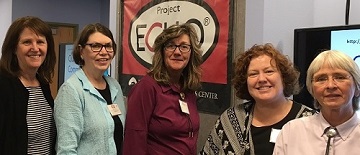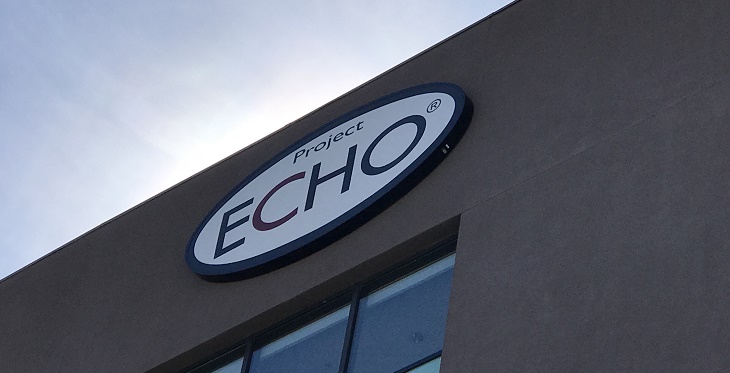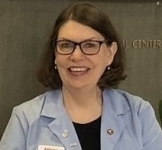The problem
If you need to see a rheumatologist, chances are you’re going to have to wait—especially if you’re in a rural area. According to a 2013 study by the American College of Rheumatology Committee on Rheumatology Training and Workforce Issues, rheumatologists are in very short supply in the United States—and as the population ages, they are becoming even more in demand.
In addition to treating the more than 50 million Americans with arthritis, rheumatologists treat other diseases, like lupus, fibromyalgia, rheumatoid arthritis, gout and scleroderma. These specialists not only have completed four years of medical school and a three-year residency, but also have undergone an additional two to three years of training in a rheumatology fellowship.
So how do we in Arizona address this workforce issue without making patients travel long distances to be seen, often after waiting months for an appointment?
The solution
The Arizona Telemedicine Program (ATP) has partnered with the Arizona Center for Rural Health (AzCRH) to create a rheumatology chart rounds program in Arizona with the goal of increasing patient access to local rheumatology care.

The program will be part of Project ECHO (Extension for Community Healthcare Outcomes), a guided-practice model that aims to exponentially increase workforce capacity. It’s all about sharing knowledge: specialists at the “hub” site meet regularly with primary care clinicians in local communities (“spoke” sites) via video to train them in providing specialty care services. Together, the hub and spoke site clinicians manage patient cases—so it’s interactive, not just a lecture. The ECHO model™ does not actually provide care directly to patients. Instead, it dramatically increases access to specialty treatment in rural and underserved areas by providing front-line clinicians with the knowledge and support they need to manage patients with complex conditions.
Project ECHO was launched in 2003 by Sanjeev Arora, MD, a liver disease specialist at the University of New Mexico Health Sciences Center who was frustrated that New Mexico hepatitis C patients were not able to get the treatment they needed due to the lack of specialists throughout the state.
Rheumatology is a great candidate for the ECHO model because it’s not easily taught in a single sitting and requires guided practice over time. In fact, several US sites have rheumatology ECHO programs.
How it will work
Amy Waer, MD, ATP medical director, was awarded a $17,700 grant from Lilly to launch a pilot ECHO program based at the ATP and administered jointly with AzCRH. She lined up Dominick Sudano, MD, assistant professor of medicine at the University of Arizona College of Medicine, Tucson, and a practicing Banner Health rheumatologist, to meet with up to 40 primary care clinicians throughout the state for two hours each month starting in September 2017. About 20 minutes of each session will be a lecture on a rheumatology subject; the rest of the session will be case reviews. Though actual patients will not be seen, local physicians will present their patient cases (with all Protected Health Information de-identified) so that Dr. Sudano can advise them on how to proceed.
“This represents an excellent opportunity to improve patient care across Arizona while simultaneously connecting with and educating primary care providers about rheumatic diseases,” Dr. Sudano says.
As community-based clinicians attend more sessions and learn from Dr. Sudano and each other through the lectures and chart rounds, their knowledge of rheumatology will increase so that they can treat patients in their own communities, and even become local consultants. Cases identified as severe would still be sent to a rheumatologist, but the wait time should be much shorter, thanks to less severe cases being treated locally.
Hope and excitement
“Our hope is that these efforts will improve access to specialty health services in Arizona’s rural communities,” says Daniel Derksen, MD, director of AzCRH, which works closely with Arizona’s 14 critical access hospitals and their 17 affiliated rural health clinics.
Does this model work? A 2011 study published in the New England Journal of Medicine showed that quality of hepatitis C care provided by Project ECHO-trained clinicians was equal to that of care provided by university-based specialists.
Colleen Hopkins, telehealth coordinator at North Country Healthcare in Flagstaff, AZ, agrees that the model works. “Our providers feel so much more confident and competent about treating their patients with hep C,” she says. North Country has been participating in a hepatitis C ECHO program through St. Joseph’s Hospital and Medical Center (a Dignity Health member) since 2012.
Dr. Waer plans to expand ECHO programs to other specialty areas if the initial rheumatology program is successful. And there’s every reason to think it will be: hospitals and primary care clinics in rural areas have had an overwhelmingly positive response to the rheumatology ECHO program idea.
“The need for Rheumatology services is so great across northern and central Arizona,” says Gigi Sorenson, system director of telehealth and community connected care at Northern Arizona Healthcare. “We are excited to watch the rollout of the ECHO program and participate to serve our patients' and providers' needs.”
Any Arizona healthcare provider with an interest in rheumatology is welcome to join. For more information, go to http://telemedicine.arizona.edu/echo or contact Amy Waer, MD, ATP Medical Director, awaer@surgery.arizona.edu or (520) 626-8074, or Phyllis Webster, ATP Telemedicine Coordinator, pwebster@telemedicine.arizona.edu or (520) 626-9229.
This activity is supported by an educational grant from Lilly. For further information concerning Lilly grant funding visit www.lillygrantoffice.com

